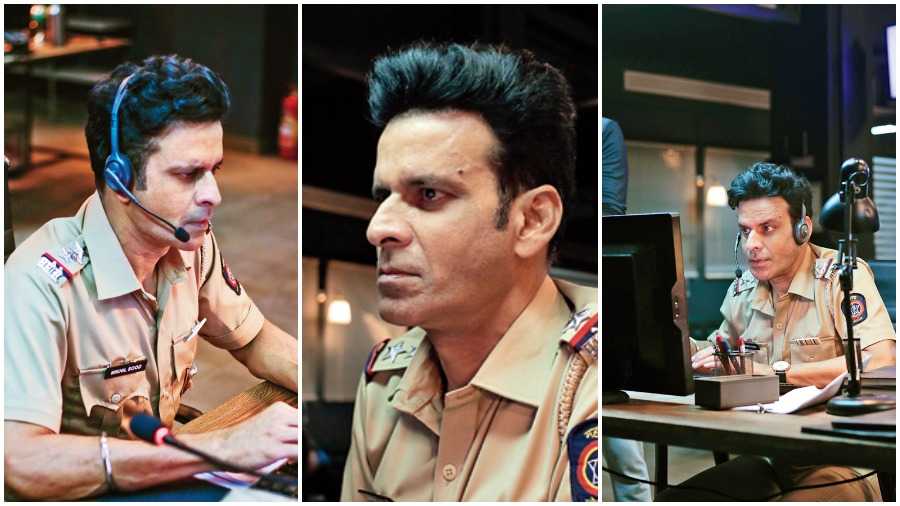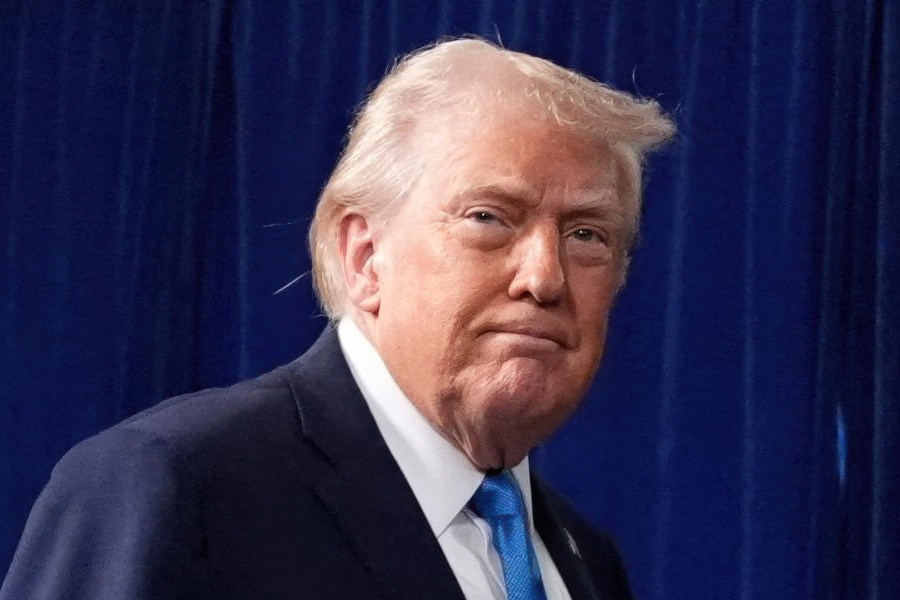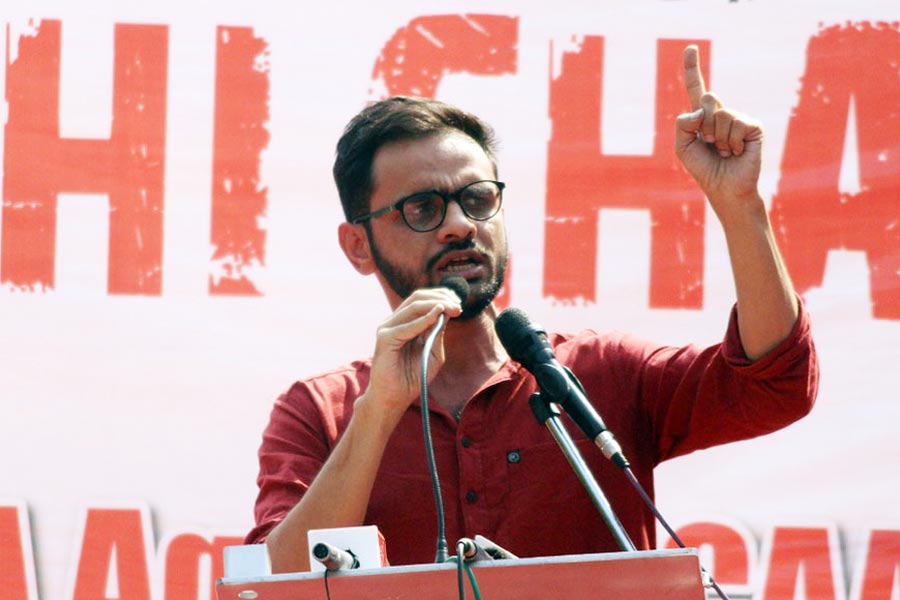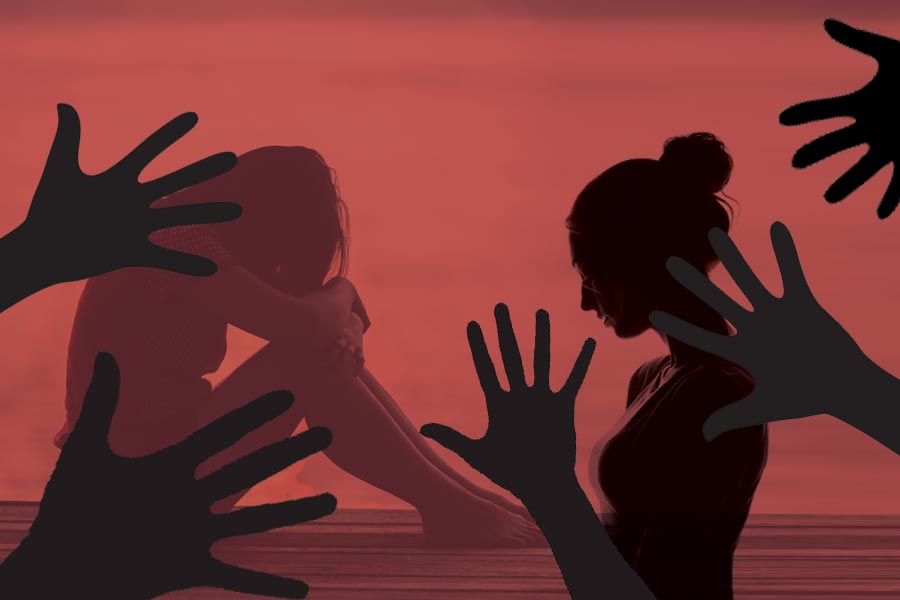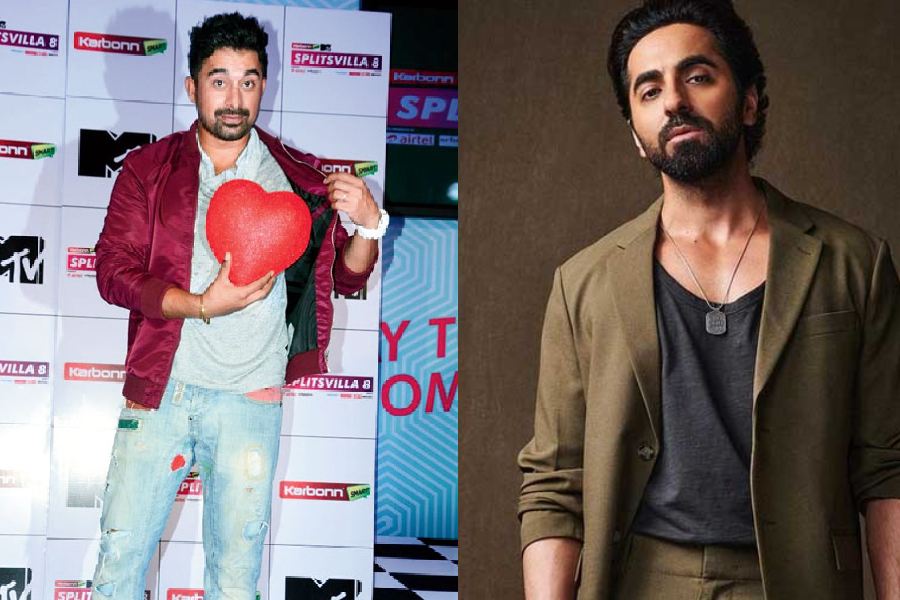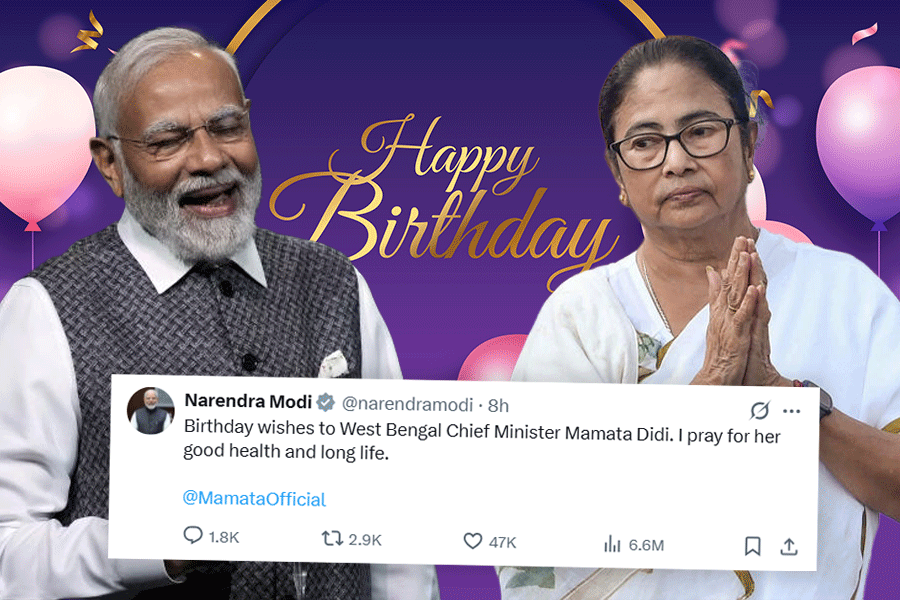Manoj Bajpayee
After Silence in end-March and of course the second season of the action-thriller Family Man, we will see you in another thriller, Dial 100, this Friday.
Dial 100, apart from being an edge-of-the-seat thriller, is a topical film. It talks about today’s parental problems of dealing with teenaged children. That makes it more interesting for me.
From the trailer, it seems the story is set off by a call received at night at a police call centre. How important was sound in the film?
It’s sound that officers at the emergency call centre are dealing with all the time. They become experts in knowing the atmosphere around the person who is calling, whose call is a prank and whose serious, whose call is dangerous.... Their capacity of observation through listening is superlative. They are dealing with sound all the time and dealing with the voice on the other side. If you are talking on the phone, it is a difficult performance. You are not doing much yet what you are listening to is doing something to you. That has to be conveyed without doing much.
Is it because sound plays a vital role that the project needed an Academy Award winner?
Resul Pookutty (of Slumdog Millionaire fame) is the sound designer. Who could be better than such an experienced hand? He has done a remarkable job.
Is the call centre a whole-time job for your character?
An emergency call centre is a whole-time job, with both day and night duty situations. Officers are transferred there. They attend to calls and transfer to the department concerned. You sit with the director who has visited the centre and try to understand from him the situation that the character is thrown it.
My character is a middle-class guy who’s a failed father and a failed husband. He gets a chance to stand up to the challenge and redeem himself. Will he be successful or not? That’s the story. Such an amazing storyline in the format of a one-night thriller. Everything about the script is so engaging!
This was you first time working with Neena Gupta and Sakshi Tanwar.
What fantastic women both are! I can go on talking about Neena Guptaji. The world knows about her acting ability and her conviction as a person. I have a lot of respect for her. I know Sakshi from her college days. She was in the dramatic society of her college. I was there to direct a play. She was the main lead. This was in Lady Shri Ram College for Women. It wasn’t like I had not talked to her before Dial 100 since then. But this is the first time we worked together. I am proud of her success and all the work she has done.
Before the release of the Netflix series Ray, Netflix and Amazon Prime Video were engaged in a Twitter banter over you, with Netflix playing with the words ‘family man’, and Amazon retorting by teasing your character Srikant Tiwari in The Family Man, about job change.
I was so happy that I was there in the middle of all of it in a good, funny way. You feel complimented.
While Silence and Dial 100 are both thrillers, you have done projects in other genres also recently in the OTT space.
The first season of The Family Man, which has done so well, the focus was so much on the family dynamics. In Season 2, that theme continues and we show corporate culture. All kinds of things are doing well. I got National Award for Bhonsle (on problems of migrants). That too came on OTT.
Did you see any of The Family Man memes, using lines from the show like “Beta paap lagega tujhe” in different situations?
I see these memes on social media handles. It is flattering that people are finding those dialogues so real and relate to them.
What’s coming next from you?
After Dial 100, there will be a long gap. Because of the pandemic, we’ve not been shooting that regularly. All the films I am shooting will be coming after April. I am doing some interesting stuff. There are films by Raam Reddy (director of the National Award-winning Kannada film Thithi), Kanu Behl (Despatch, a thriller on crime journalism) and Abhishek Chaubey (who also directed him in Ray). I have a backlog pending for a year. I am not even free for a day to breathe before all these films finish.
Neena Gupta
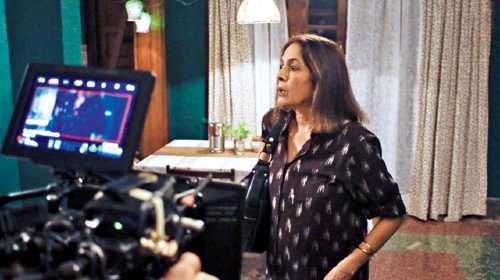
Neena Gupta took a quick call from t2 during lunch break from the floor of a film called Shiv Shastri Balboa, which she is shooting in the US with Anupam Kher. This is what she has to say on Dial 100:
“This was my first film after the first wave of the pandemic. The first day someone called, saying this was on a woman seeking revenge. I turned it down. Then I heard the whole story and the character and loved it. The whole film was shot over in 18 days and I shot for nine nights. That made things very difficult. The director Rensil D’Silva helped me a lot for my performance.”
Sakshi Tanwar
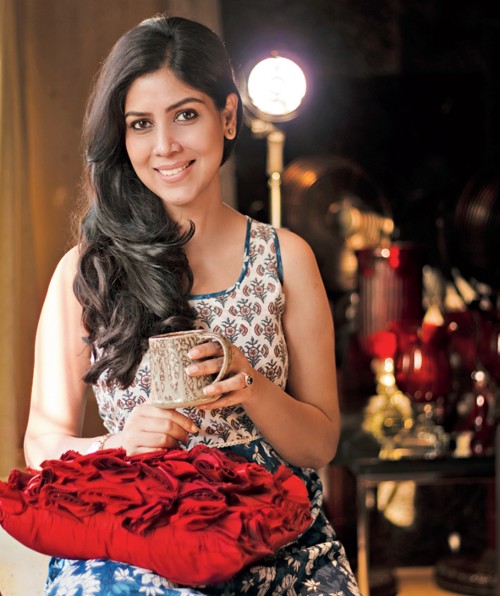
Is Dial 100 your first film to release on OTT?
No. I had done a film called Ghar ki Murgi. That had released on the web as well this February.
The trailer was quite intriguing — a call coming through to the police call centre at night. How much can you tell us?
My character Prerna Sood is the wife of Nikhil, the cop who takes the call, played by Manoj Bajpayee. She is a doting mother but she gets caught in the situation. There’s something that she had hidden in her past. With that one call, all that starts unfolding. It’s a one-night story.
How long was the shoot?
The film was shot over 18 nights. I shot for eight nights. Neenaji (Gupta) and I had exterior shoots. So there was no way we could fit that at any other time. Our shoot started at 5.50pm and pack up was at 5.30-6am.
Are you a late-night person?
I sleep around 1 o’clock. But with a child at home during lockdown, life had become different. The child slept off by 7.30pm, my parents retired by 10pm. After that, I stayed up another hour by myself. By 11pm, our house looked like it was 3am. And I’d wake up at 7am. When I started work, I realised I was on an absolutely opposite schedule. It was so difficult. I’d be back at 7am, looking for rest. But the house is functioning on a normal schedule. Bells are ringing, the child is up, so much commotion…
Ditya (adopted as a nine-month old) must be about three years old now.
Yes, she is three-and-half. I used to tell her “Momma is going to work” but she would wonder “Why is Momma sleeping in the daytime?” More than me, it was tough for my parents to keep her engaged so I could get a few hours of rest.
This was your first project with both Neena Gupta and Manoj Bajpayee, right?
Yes, they are both amazing people and actors. I’ve admired their work so much. Neenaji is so unassuming, so simple. We had so much fun. We would switch off our minds and chat about so many things and sing old songs. She would speak about her drama days and we would discuss our college days in Delhi.
Manoj Bajpayee told us he knew you as a student.
Manoj sir had directed a play for our college. I was awkward to bring it up. It might seem I was boasting. When he met for our first reading he only said that he gave me my first lead role and I was his student. It took me so many years to get some screen space with him. Whatever we have done has come off so well.
Was this your first film in the thriller space?
The Final Call, the web series I did in 2019, had some thriller elements. I have also done 24. I was the chief of the Anti-Terrorist Squad in that series. That was a kind of thriller too but on television. Rensil (D’Silva) sir had directed that also. You don’t feel his presence as a director. He would come and explain the scene. And everything would flow automatically, he is that good. He had a meeting with the police chief and the idea came to him. He wrote it so fast!
Your father was a CBI officer. Are you looking forward to showing him the film?
My dad likes anything to do with wardi or police. He is critical about many things. What is written on the poster behind is wrong. I tell him: “Papa, just enjoy!” He saw the trailer of Dial 100 and the subject intrigued him. He told me: “Bade parde pe dikhao”. He doesn’t like to watch on phone. For our parents, watching a film means in a theatre. God knows when we can return to a theatre.
From Parvati in Kahani Ghar Ghar Ki to Prerna in Dial 100, has your journey also been the journey of the Indian small-screen audience?
Yeah, kind of. It’s been 21 years since it went on air. Definitely there has been a shift though I’d still say TV has maximum reach and there are audiences for Kahani Ghar Ghar Ki even now. But yes, audiences, especially the 18-35 age group, want to watch what interests them rather than what comes on TV. It’s an interesting time for writers, directors and actors. I am getting to hear amazing stories.

